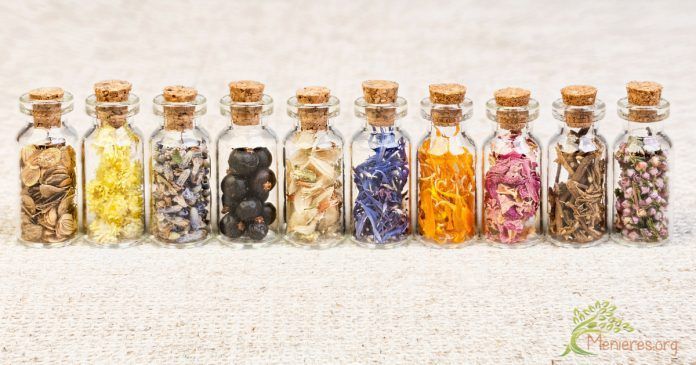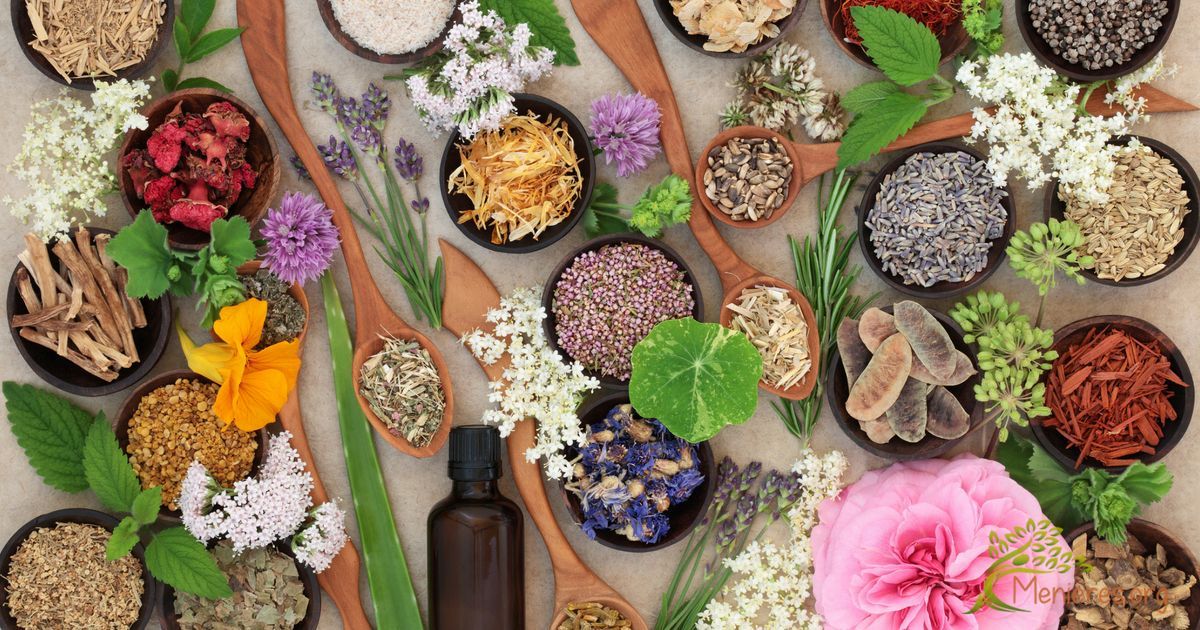
Over 50,000 cases of Meniere’s Disease occur every year in the United States. Medical reviews share information suggesting the number of sufferers is increasing, due to better identification protocols. No matter what, the search for a cure continues. Until that time those with a Meniere’s Disease diagnosis seek various ways of decreasing or controlling their symptoms, of which trying natural treatments is one option.
Meniere’s Disease Overview

While anyone may show symptoms common to Meniere’s, those between the ages of 40 and 60 have a higher instance of diagnosis. Each person experiences Meniere’s in different ways, but they all face challenges to maintain their quality of life. There are many medical treatments available, but some people prefer a less clinical approach and research natural treatments for Meniere’s Disease.
Meniere’s Symptoms:
While there is no cure known for Meniere’s, the chronic symptoms are identifiable. Such symptoms include:
An inner ear fluid disorder resulting in vertigo, dizziness, and nausea. When a person feels like they are spinning when everything around them stands still: That’s vertigo. With Meniere’s Disease, this sensation lasts at least 20 minutes. However, for many people, the dizziness remains for hours or even days. This is the greatest safety issue for Meniere’s since the person never knows exactly when an attack may happen. Things like driving or climbing a ladder become worrisome.
Tinnitus, or ringing in an ear, is another symptom of Meniere’s. Sometimes this sounds like one long note. Other times people describe it as buzzing, whistling, chirping, and hissing. This sound may begin right before a Meniere’s episode and remain for a while thereafter. Later in the disease’s progression, the ringing becomes constant for some people and may move into the second ear as well. While bothersome, this symptom isn’t dangerous.
Hearing Loss: Right from the get-go most Meniere’s patients have some level of hearing loss often in the lower registers of sound. Like the tinnitus, this begins in one year but may manifest in both. The level of hearing loss increases with time. However, if a person has a long pause between vertigo occurrences, they may experience some hearing improvement.
Ear Pressure: One ear feels as if you want to “pop” it like you might in an airplane. Or it might feel like swimmer’s ear. This is uncomfortable, but not a serious health factor.
Please note: Symptoms can appear together, or in various combinations. By far the most common is ongoing instances of vertigo.
Causes of Meniere’s Disease:
The causes for this disorder are as mysterious and elusive as the cure. The research community feels any or all of these factors may tie into the origin of the disease or its presentation:
- Medications (side effects)
- Ear infections; sinus infections
- Genetic predisposition
- Allergies (both airborne and food)
- Smoking
- Drinking alcohol
- Constant stress
- Autoimmune deficiencies
- Head trauma
Natural Treatment Options for Meniere’s Disease

If you receive a diagnosis of Meniere’s, your doctor may give you various options for your treatments. These might include medication for your nausea, diuretics to help maintain proper inner ear fluid levels, a hearing aid, ear injections, balance rehabilitation exercises and even surgery in the worst-case scenarios. Some of these treatments may work great; others not so much so. That’s where looking into natural management for your Meniere’s disease comes into play.
The beauty of natural approaches to your condition is that they should work perfectly well with your current care plan. However, it’s always best to consult your primary physician about the ideas you’d like to try.
Acupuncture /Acupressure: Some studies have shown that both acupuncture and acupressure can decrease the severity of vertigo episodes for Meniere’s patients. While further research is necessary, so far, the results are promising.
Allergy Relief: We know antihistamines help some people with Meniere’s, but did you know raw, local honey can tackle allergy symptoms? When you eat local honey you also consume local pollen. This may begin the process of desensitizing you to those pollens. No matter what, honey has fantastic antibacterial and antioxidant properties. Some recommend using one tablespoon of honey mixed with apple cider vinegar and lemon. Or, just enjoy it on your morning toast!
Alcohol Intake: Limiting or eliminating alcohol from your diet can improve the volume composition of your inner ear.
Auto Immune Support: Various doctors studying Meniere’s feel it may be some autoimmune response (or a response to a compromised immune system). So, you might add some of nature’s immune boosters into your diet. These include:
- Hops
- Turmeric
- Sarsaparilla
- Nettle
- Green Tea
- Ginger
Caffeine Intake: Some people find that drinking beverages with caffeine make tinnitus seem louder. Note that green tea, while touted for health benefits, still has caffeine. Other surprising things that contain caffeine include:
- Chocolate ice cream
- Weight loss pills
- Some migraine pills
- Energy drinks
- Coffee yogurt
- No-Doze
Eating Patterns: The more consistent you can be with your meals, the better. This includes balancing food and liquid consumption. Also, if you have a food allergy or sensitivity, avoid that item. Allergies can impact the way your inner ear behaves.
Massage: Studies show that deep tissue neck massage can ease tinnitus to various degrees.
Salt Intake: Reducing the amount of salt in your diet might ease some of your symptoms. Salt increases fluid retention in your body. That means your ears too. So, experts say to monitor your foods and spices, keeping your daily salt intake to under one teaspoon total.
Stress: On-going stress is terrible for your body. It creates hormonal shifts, digestive problems, and can even increase the risk of diabetes and heart disease. Stress is a source of trouble for Meniere’s patients too. Consider natural treatment options like meditation, yoga, sound therapy and breathing exercises.
Sweeteners: Sugar and artificial sweeteners can both change the volume of your body’s fluids that lead to Meniere’s symptoms. Sugar in moderation is fine, but definitely avoid the sugar substitutes, which are far worse.
Therapeutic Essential Oils: There are a variety of aromatherapy products you can try for reducing your Meniere’s symptoms. These include:
*Basil: For vertigo. You can use fresh leaves boiled in water and let the scent waft through your home.
*Citrus: Orange, lemon and lime help ease Meniere’s headaches and dizziness. You can inhale it in the form of steam, or rub a little bit on your temples and neck nape two times a day.
*Cypress: This can decrease sinus congestion that might lead to an attack of vertigo. Use a steam inhalation. An alternative to this is Eucalyptus oil.
*Frankincense: Try a small dab of the oil on the top of your head for vertigo. Alternatively, you can dab it behind your ears.
*Ginger: Ginger oil packs a double wallop – it relieves dizziness and the associated nausea that often goes with it. Essential ginger oil is edible, and you can add it to hot water for a grumpy stomach.
*Lavender: This is the go-to essential oil for Meniere’s patients struggling with anxiety, depression, and stress. Use it as a cream or lotion, particularly before bedtime. Rosemary may also help with the extra benefit of improving your energy levels and easing headaches.
*Peppermint: Peppermint oil works on vertigo and its associated nausea. If your sinuses are acting up, this may likewise give you some relief. Dab it on near your nose lightly.
Two words of caution with therapeutic oils. Make sure what you get is a high-quality essential oil from a trusted company (not “scented” oil which has chemicals in it). Also, if you plan on using these as a topical, test a drop or two on a patch of skin so you can determine any sensitivity.
Tobacco: Smoking, due to the nicotine content, lowers the blood supply to your inner ear.
Water Retention: There are natural alternatives to over the counter or prescription diuretics. One is dandelion tea (the folk name for dandelions is pissabeds). Other diuretics from nature’s warehouse include hibiscus (tea), fresh ginger and parsley.
Summing it All Up: Making the Most of Natural Meniere’s Treatments

Meniere’s Disease has often been over-diagnosed. Because of the potential for misdiagnosis, it means checking for underlying medical conditions is necessary. A doctor will examine you and run tests to ensure you aren’t dealing with a condition other than Meniere’s Disease. With a definitive diagnosis in hand, you can then pursue natural remedies which prove effective in Meniere’s symptom control.
In pursuing any treatments, it’s always good to learn about them first. Know what awaits you. Ask your attending physician for any pamphlets they may have, or ask questions in a support group before your appointment. This diligence holds true with natural treatments for Meniere’s as well. There is a lot of information on the Internet that is not always well-researched or supported. Become the best advocate for yourself that you can be. Knowledge is power in your quest for wellness.
